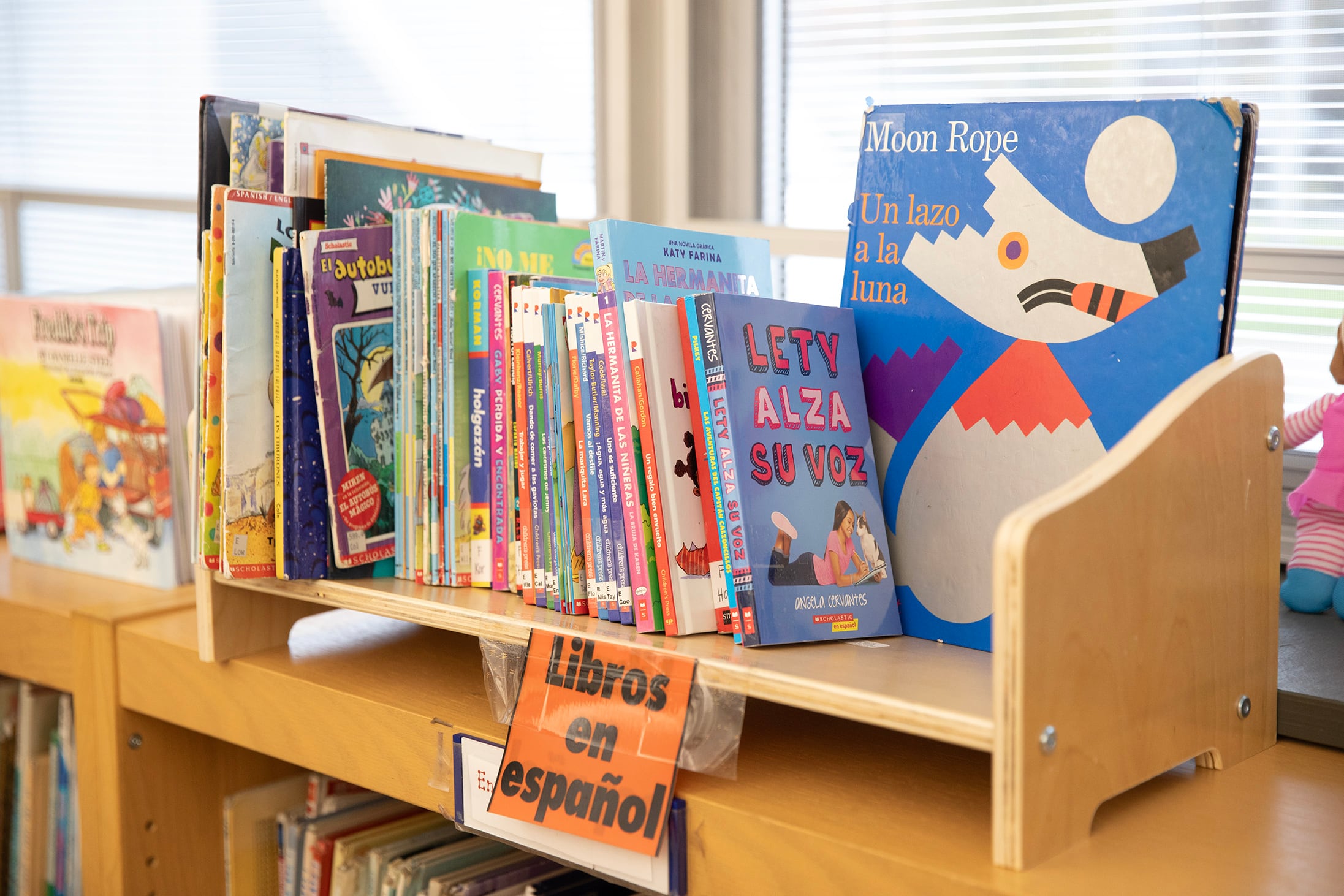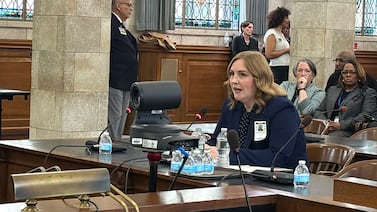Sign up for Chalkbeat Colorado’s free daily newsletter to get the latest reporting from us, plus curated news from other Colorado outlets, delivered to your inbox.
The number of Colorado students who are learning English as a new language is expected to continue to increase – and State Board members are taking a closer look at their performance.
The Colorado Department of Education on Wednesday presented a State of the State on multilingual learners — the term the state uses to identify students who need services as they learn English as a new language, formerly referred to as English language learners. The presentation signals a greater interest from the State Board in how those students are doing.
In the 2023-24 school year, Colorado identified 114,482 multilingual learners, up from 109,780 in 2022-23, but still lower than 122,976 identified in 2019-20. Those latest numbers mean about 13.4% of all Colorado students are learning English as a new language, similar to 13.9% in 2019-20.
One difference in the population, however, is that a larger portion of those students are considered not-English proficient, meaning they are at the lowest level of fluency, just starting to learn English. In 2023-24, there were 38,036 students identified as not-English proficient, up from 29,147 in 2019.
The update reiterated some previous data that shows that this group of students has struggled to recover academically from disruptions at the beginning of the pandemic compared to other students.
It also showed that statewide, fewer students are reaching English proficiency test levels that allow them to be considered to exit the need for federally-required support services.
But it also showed that students who do reach English proficiency and exit services typically score similarly to native English speakers, although a gap remains on the SAT test high school students take.
When state board members asked about the challenges districts face in educating these students, Education Commissioner Susana Córdova said one of the largest is in finding enough highly qualified staff members who are trained or bilingual for certain models.
State Board members suggested that one of the ways to look at the effectiveness of school programs to educate English learners would be to look at how students move through language proficiency levels.
Students who are learning English as a new language take a test each year that determines their language abilities in speaking, listening, reading, and writing. Students are placed in levels one through six depending on how much English they understand.
Staff for the Colorado Department of Education said Wednesday they believe it takes students about five to eight years to reach fluency in English at a level adequate for academic learning. They said the department is taking a closer look at tracking students who get stuck and might take longer than that to learn the language.
The department is also attempting to highlight more good work schools are doing with English learners. Officials started Wednesday by highlighting the Denver Language School, a charter school that focuses on an immersion model and has about 12% of its students identified as English learners. The school has high ratings and has been improving, officials said.
Yesenia Robles is a reporter for Chalkbeat Colorado covering K-12 school districts and multilingual education. Contact Yesenia at yrobles@chalkbeat.org.





